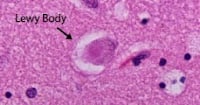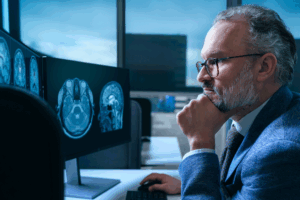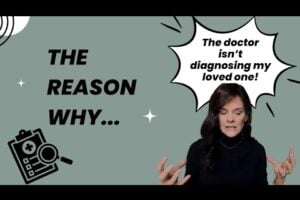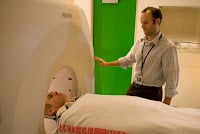LBD VIDEO + ARTICLE:
An accurate Lewy body dementia diagnosis is important. It can even have life-saving implications. Affecting more than 1.3 million Americans, Lewy body dementia (LBD) is the most misdiagnosed form of dementia. Find out more about the second most common cause of dementia after Alzheimer’s.
LBD (Lewy Body Dementia) is associated with abnormal protein deposits in the brain, called Lewy bodies, that affect thinking, movement, behavior and mood. It’s difficult to diagnose LBD, because its early symptoms resemble those found in Alzheimer’s and Parkinson’s disease.
Recognizing LBD
“Recognizing LBD at its earliest stage is critical not only for an accurate diagnosis by the appropriate specialist, “ says James B. Leverenz, M.D., Director of the Cleveland Lou Ruvo Center for Brain Health at the Cleveland Clinic, “but also because it is important for a patient with LBD to be managed by an expert familiar with dementia in general and LBD in particular.” Leverenzadds, “A primary care physician with the best intentions may not be well informed, so it becomes the duty of the patient and caregiver to know about resources, such as the LBDA and the Alzheimer Association, for help when needed.”
The Difference Between LBD and Parkinson’s
According to Leverenz, the combination of the motor signs of Parkinson’s disease (slowed mobility, stooped posture and tremor) and mental confusion, especially if the degree of confusion fluctuates day to day, should raise a red flag for suspicion of LBD. Furthermore, Leverenzsays if those symptoms are accompanied or preceded by REM sleep behavior disorder (“acting out dreams”, dream enactment, hitting bed partner, falling out of bed) and visual hallucinations (seeing people, animals, etc., that aren’t truly there), then the diagnosis of LBD should be strongly considered.
Even when all symptoms of LBD are present, it is critical for the evaluating doctor to look for underlying, TREATABLE causes of dementia. A thorough assessment will include an inventory of daily medications (drugs can produce a “chemical” state of pseudodementia), CT or MRI scan of the brain, blood tests for thyroid function and vitamin deficiency and other causes of dementia that can be identified by routine study.
Acceptable and Forbidden Drugs
While the symptoms of LBD may be similar to Alzheimer’s and Parkinson’s disease, the treatment strategy is more challenging because fewer medications can be used safely. People with LBD have medication sensitivities, and an early and accurate diagnosis can protect them from receiving medications that can worsen their symptoms, cause severe side effects or trigger a potentially deadly reaction. Leverenz warns, “The avoidance of medications that can worsen the symptoms of LBD cannot be overemphasized. Every patient with LBD and their caregiver(s) should be familiar with the list of acceptable and forbidden (“contraindicated”) drugs.”
Keeping a handy list of these medications can be very useful for medical appointments and other potential medical events, such as an emergency room visit. People with LBD and their caregivers should both carry LBDA’s Medical Alert Wallet Card and present it to any new physicians or upon hospitalization. Physicians can learn more on the LBDA Website about emergency treatment of LBD-related psychosis.
MORE INFORMATION:
LBD: A Debilitating Dementia
A debilitating disease, Lewy body dementia impairs thinking, movement, sleep and behavior (causing people to see hallucinations or act out dreams, sometimes violently). Also, it affects autonomic body functions, such as blood pressure control, temperature regulation, and digestion. Recognizing symptoms early can help people with LBD get comprehensive and appropriate treatment and help caregivers get much needed support.
Support for Healthcare Providers and Families
Education about LBD is urgently needed. The Lewy Body Dementia Association offers healthcare providers, individuals with LBD and caregivers a range of information, resources and support. To receive a packet of information or to access other resources about LBD, visit http://www.lbda.org/lewywho/.
About Lewy Body Dementia Association
The Lewy Body Dementia Association (LBDA) is a 501(c)(3) nonprofit organization dedicated to raising awareness of Lewy body dementias (LBD), promoting scientific advances, and supporting people with LBD, their families and caregivers. LBD, a complex disease that can present with a range of physical, cognitive, and behavioral symptoms, is a “family disease.” It dramatically affects not only the person diagnosed but also the primary caregiver. A national health organization, LBDA supports all those affected by Lewy body dementias through outreach, education and research. To learn more about LBD and LBDA, please visit lbda.org.











